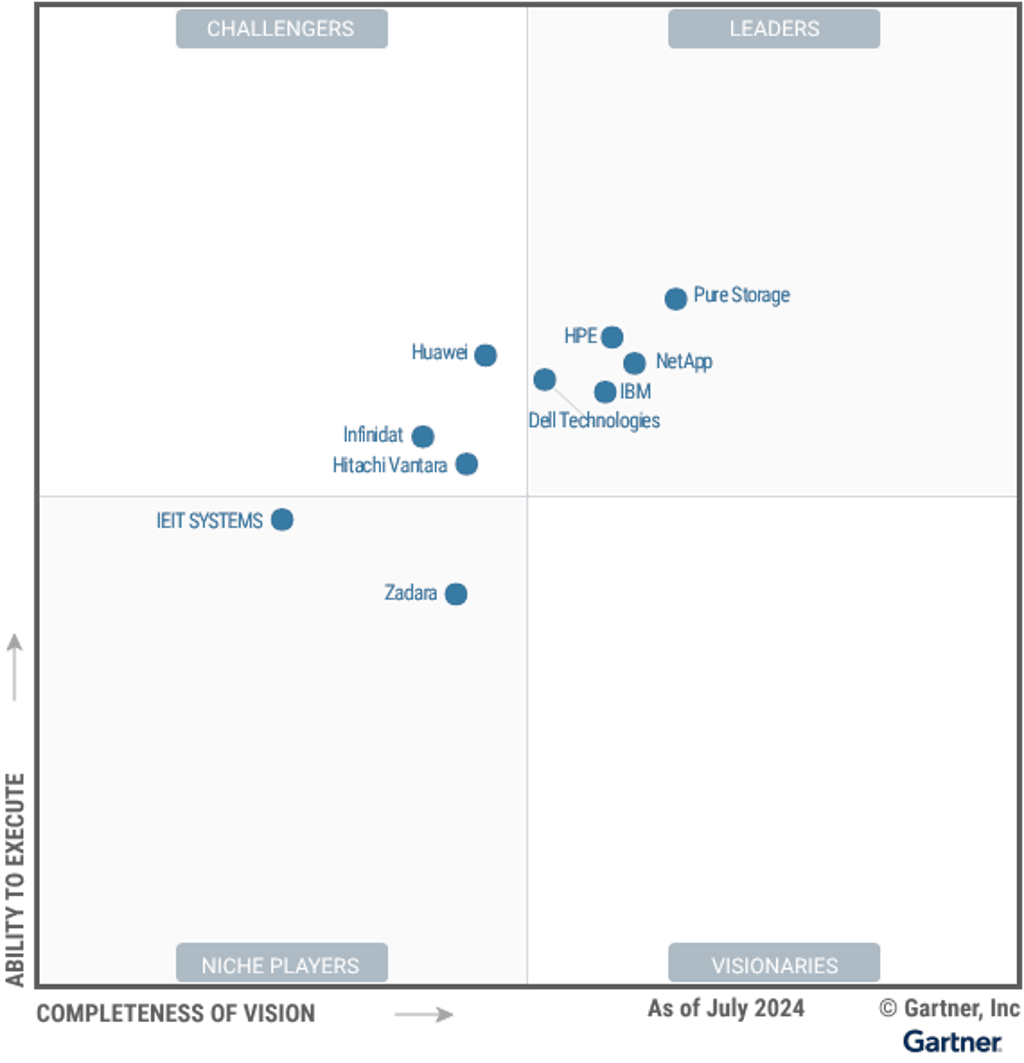Heads Up CIOs: What Lies Behind the 2024 Gartner Magic Quadrant Report for Primary Storage

[The content of this article has been produced by our advertising partner.]
As the data storage industry evolves, Gartner’s changes to the 2024 Magic Quadrant for Primary Storage Platforms (PSP) are causing concern among vendors and customers. The reorientation toward hyperscaler integration and geopolitical raises critical questions about competition, innovation, and customer choice.

Traditionally, the Leaders quadrant included companies with broad market share, global presence, and consistent financial performance, while Challengers have strong execution but less market influence. Gartner’s revised criteria favour hyperscalers, pushing traditional vendors into the Challengers quadrant despite offering best-in-class storage solutions. This shift could have significant implications for vendors and enterprise customers and unfairly distort the market.
Inclusion and Evaluation Criteria Revisions Favour Hyperscalers
The revisions by Gartner heavily emphasise platform-native services, storage-as-a-service, and hybrid cloud architectures, where hyperscalers excel. A similar story unfolds with a focus on software-defined storage. Moreover, Gartner’s revised criteria demand a global presence across major geographies, further cementing the advantage for hyperscalers.
While many traditional vendors maintain strong customer bases in specific regions, they often lack the extensive global infrastructure of hyperscalers, which operate on a global scale by design. This challenges vendors outside the United States, where the hyperscalers dominate. Traditional vendors offering high-quality solutions with a strong vision for the future will be disadvantaged due to their limited global reach, an issue sometimes driven by geopolitical constraints rather than a lack of capability. For example, regional players in Europe and Asia-Pacific could be excluded from the Leaders quadrant by not having a substantial presence in North America. This is particularly contentious as Gartner arguably presents a less comprehensive view of the Primary Storage Market.

